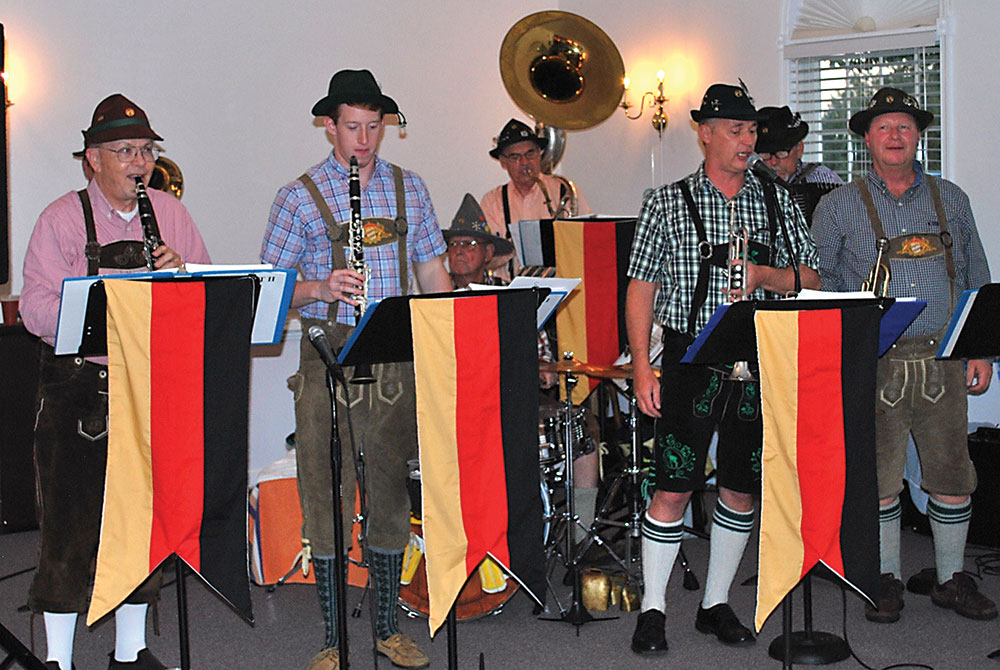
In honor of 30 years of The Rivah Visitor’s Guide we are featuring stories that have previously been printed throughout our 30 year history. This feature story appeared in the September 2015 issue.
by Audrey Thomasson –
We’ve all seen them—the oompah bands, beer-guzzling men in lederhosen and women in dirndle skirts and busthugging blouses guaranteed to curl a man’s suspenders. And, of course, enormous steins overflowing with foaming lager.
What else do you know about the German-based festival, Oktoberfest? Let’s bust a few myths and learn the facts before you attend one of the area’s upcoming celebrations.
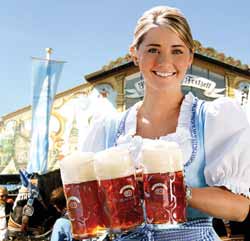
So why is a festival named Oktoberfest held in September?
Known as the largest “Volksfest” (people’s fair) in the world, Oktoberfest began in Munich as a celebration of the October 12, 1810, wedding of Bavarian Crown Prince Ludwig I and Princess Therese of Saxony-Hildburghausen. For five full days, the burghers of München (Munich) were invited to eat, drink and be merry with parades, kettle drums, music, shooting displays and horse races. It was so well received they decided to stage the races and other indulgences again the following year, and then the next and the next.
Over time, the event grew to a two-week celebration and was moved into September, ending on the first Sunday in October in order to take advantage of better weather. In 1995, the date was again modified to end on German reunification day October 3, 1990.
You’ll find local events floating between September and October.
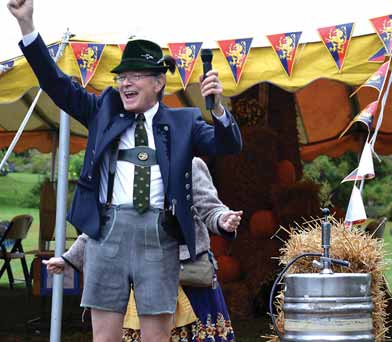
How big is the festival?
What began as a royal wedding celebration has become the biggest annual keg party celebrated all over the world. Munich’s festival attracts some 7 million visitors annually who consume 6.7 million litres of beer and eat more than 15 oxen. It begins September 20 and continues for two weeks on a meadow outside Munich’s city center. Don’t expect anything close to that scale here.
Local Oktoberfests last for just a few hours, with considerably fewer people. The beer will be flowing, even at church-sponsored events, but there won’t be any Red Cross “hangover tents” like in Munich.
What kind of food is typically served?
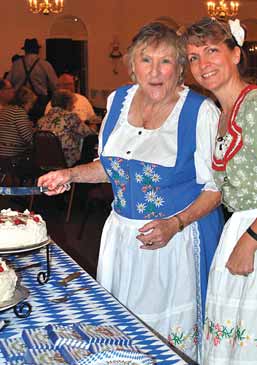
Hendle (roast chicken), Schweinshaxe (pork knuckle), Weisswurst (white sausage) and, of course, sauerkraut and strudel are the favorite celebratory foods of most Germans. Munich is also big on those giant soft pretzels. Last year, a national crisis of giant pretzel proportions nearly ruined the party when bread makers slowed down pretzel production in a threatened strike prior to the event.
In Rivah country, there’ll be no pretzel fights. You will, however, find a variety of locally grown traditions, with some locations offering homemade cakes and pastries prepared by Bavarian-clad women while the lederhosen men will be grilling most of the popular German sausages and a variety of other German dishes. Wunderbar!
What kind of beer will be served?
Germany is the land of beer gardens and some of the world’s fi nest beers. It’s fi tting that Munich’s centuries-old breweries are the only suppliers for the festivals. The beers generally have a high alcohol content, with 5.8 percent to 6.3 percent alcohol, and a malty, toasty taste. While the lagers come large (nearly two pints), so does the price at 10 euros each (about $12.50 US).
Here, the beers include tap beers, many German, and a variety of local microbrews.
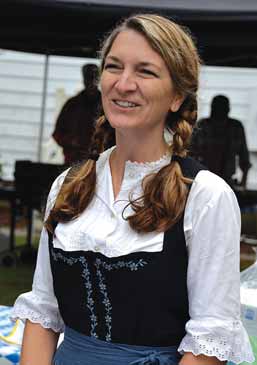
What kind of entertainment can you expect from a bunch of third- and fourth-generation German-Americans?
There’ll be no Munich-sized parades featuring draft horses pulling wagons loaded down with dozens of barrels of beer. You’ll find local events more family-oriented. Most offer traditional polka music, dancing, games and lots of activities for the kids. Gloucester’s annual Blues and Brews event is pretty much just a craft beer-fest with live music.
Do you have to dress like Bavarians?
Not really, but if you want to experience the full flavor, you have plenty of time to purchase Bavarian clothing at online specialty shops. Should Munich be on your bucket list, you’ll have a jump start for next year’s bash.
So, enjoy Rivah county’s version of Oktoberfest. Raise a stein and cheer! Prosit! (To health!)


